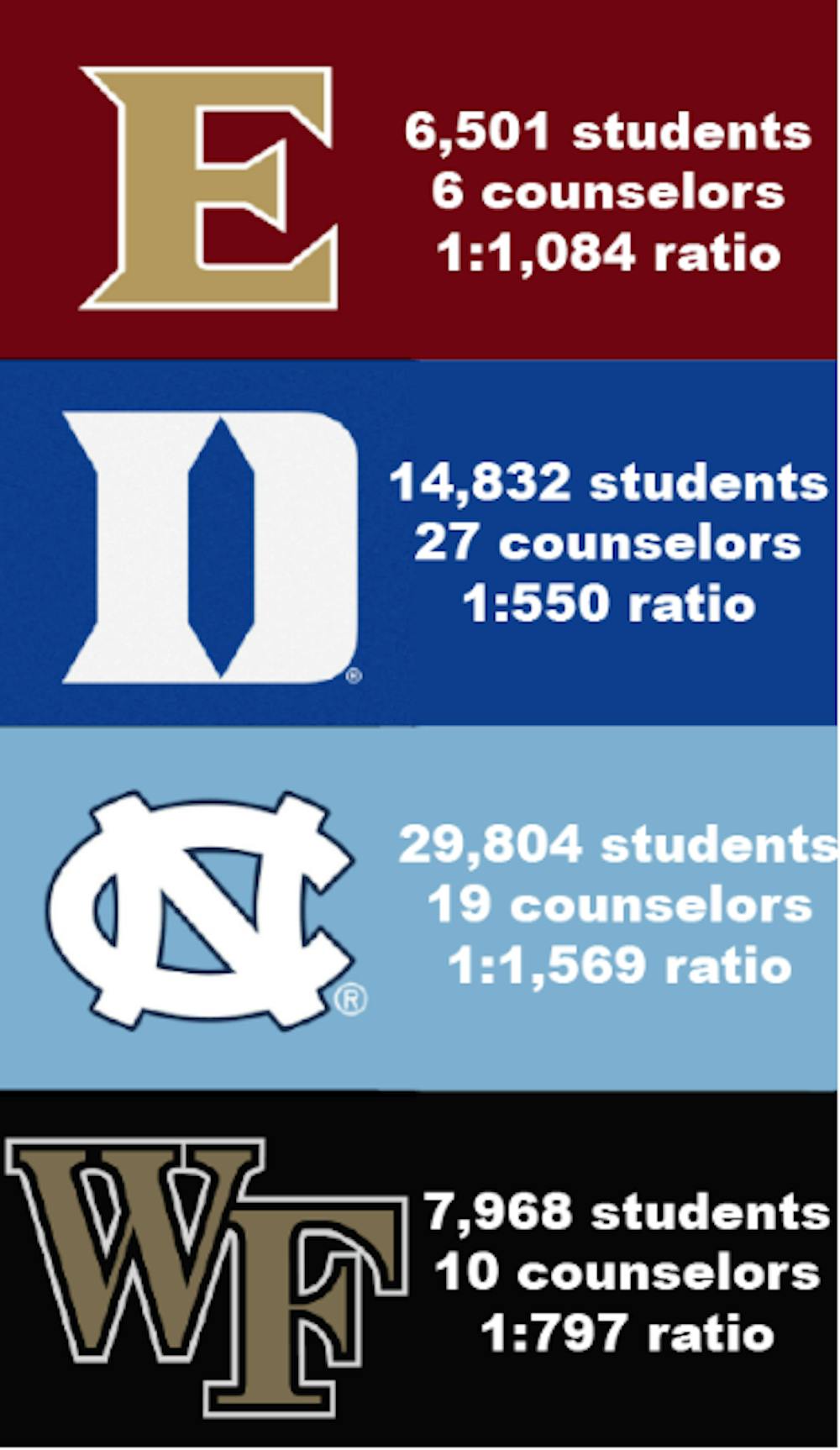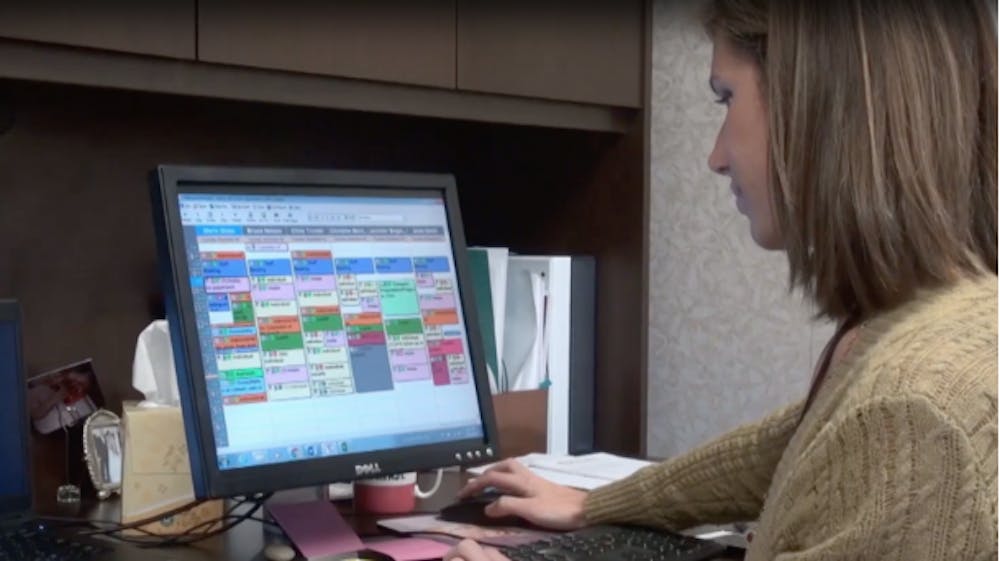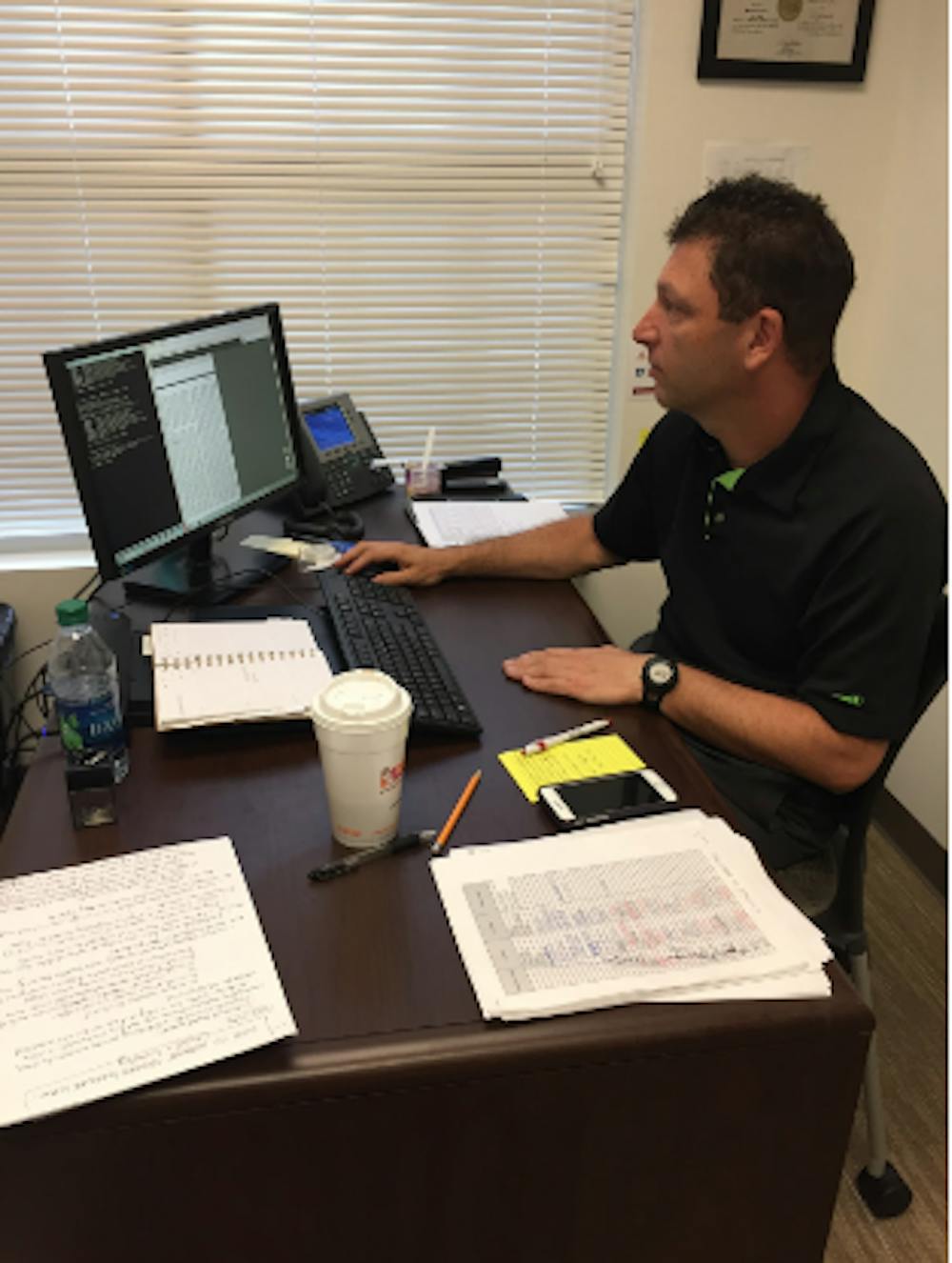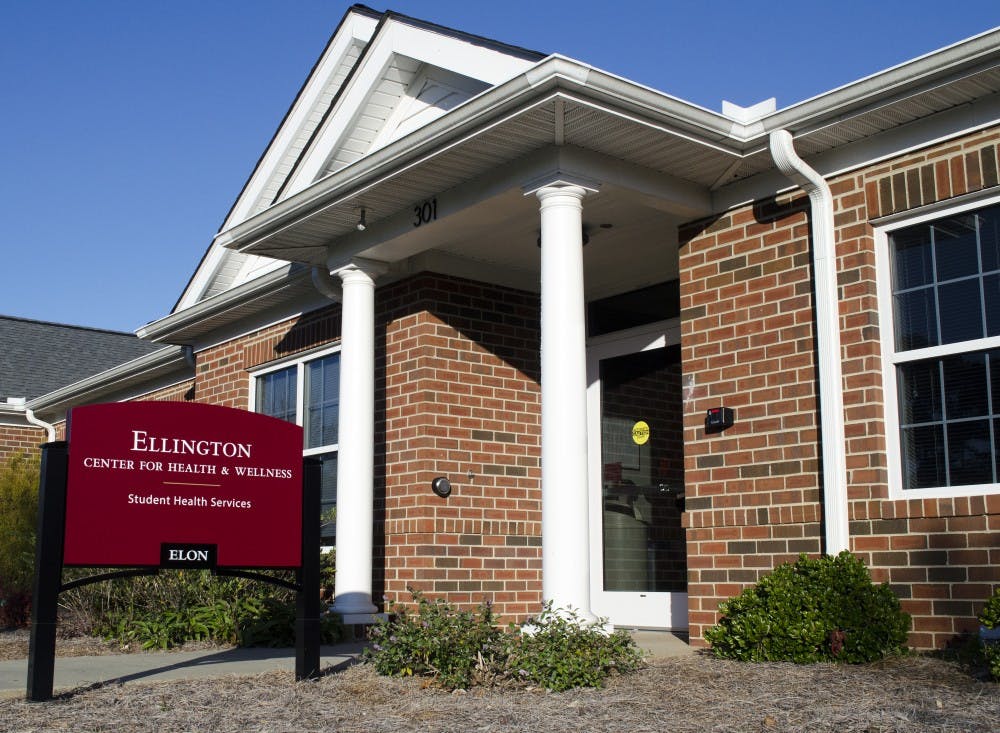For his sophomore year of high school, Noah Dyson was not sitting at a desk in the classroom. After suffering a mental breakdown and taking a razor blade to his wrist, he was in the hospital.
According to the American Foundation for Suicide Prevention, in 2015 almost 50 percent of college students in the United States reported feeling hopeless. Of the college students who battle mental health issues, almost two thirds of them never seek treatment, and one in 12 will make a suicide plan at some point in their college career.
Elon University’s Counseling Services is struggling to meet the needs of its students — students such as Dyson, who is now a freshman.
After just two months on campus Dyson said he had already developed the habit of utilizing the university’s counseling services on a weekly basis.
At Elon University, 846 students used counseling services during the 2016-2017 school year — 13 percent of the undergraduate student population. This percentage has risen 4 percent over the past ten years.
Anita Smith, assistant director of counseling services, said she would actually like to see these rates of utilization continue to rise.
“This reflects to us that students are acknowledging the need for services [and] reaching out to our office for support,” Smith said.
But students like Dyson and others who use these services said they do not feel like Counseling Services is equipped to serve a large amount of patients.
“I don’t think we’re meeting the needs of the students,” Dyson said. “If we’re going to encourage people to use mental health resources, we also have to ensure that the resources they need will be there.”
Meeting student demands
Bilal Ghandour is an assistant professor of psychology at Elon, and he also works at a group practice in Charlotte, counseling many young adults who struggle specifically with self-harm, anxiety, obsessiveness and personality disorders.
Ghandour said that he “often hears from students who don’t feel like their needs are being met at Elon’s Counseling Services.”
“What I hear too frequently is that it was not helpful enough,” Ghandour said. “I’ve heard it enough times that it doesn’t feel like it’s just one or two. It’s more than that. It’s definitely something that needs to be explored more.”
But Jana Lynn Patterson, associate vice president of Student Life and dean of students, said she believes Elon’s Counseling Services is “doing a great job with the counselors they have.”
“We have some of the finest and strongest clinicians, I would put up against any college counseling staff in the country,” Patterson said.
The six counselors Elon does have include: one health services provider psychologist, one licensed marriage and family therapist, one licensed clinical social worker and three licensed professional counselors. In addition, a counselor is on-call 24/7 for crisis response.

Elon’s Counseling Services looks at other short-term counseling centers — of the university’s peer institutions, Duke University, the University of North Carolina at Chapel Hill and Wake Forest University — to benchmark their own status.
Patterson said while these schools are considered peer institutions, “it can be difficult to directly compare counseling centers.”
“There’s no Carnegie standard for counseling services,” Patterson said.
The International Association of Counseling Services recommends one full-time counselor for every 1,000 to 1,500 students in order to adequately meet the needs of the campus. With 6,045 undergraduate students and 746 graduate students, Elon is just meeting this figure with six full-time staff.
Marie Shaw, director of Counseling Services, said though the minimum recommendation is being met, “Counseling Services could still benefit from more staff to help expand services.”
“There is a greater need for more staff,” Shaw said. “I would love to see a more comprehensive counseling center where we could devote a lot more time to more informal outreach services. We devote the majority of all our staff time to clinical services.”
At Duke, another private North Carolina university with a population twice the size of Elon, they have 27 full-time counselors for 14,832 students. This works out to one counselor for about every 550 students, which is more than twice the recommendation for counselor-student ratios. Their staff includes 10 full-time psychiatrists, two psychology residents and five social workers.
At UNC, a public North Carolina university with a population nearly five times the size of Elon, they have 19 full-time counselors for 29,804 students. This works out to one counselor for about every 1,569 students, just meeting the recommendation for counselor-student ratios. Their staff includes three psychiatrists, one family nurse practitioner and five social workers.
Wake Forest, just an hour away from Elon, is most comparable to Elon as another small, private university. With a population of 7,968 students, it has 10 full-time counselors as well as one psychiatrist through Student Health Services. This works out to one counselor for about every 797 students more than twice the recommendation for counselor-student ratios.
While Elon has a slightly better counselor-student ratio than UNC, all universities have a wider variety of professionals on their staffs, including psychiatrists, which is one of Counseling Service’s goals,
“We look forward to expanding staffing resources to better manage the growing demands for services, improving access to psychiatric care, diversifying our treatment interventions, developing therapy groups and/or educational workshops and exploring innovative service delivery options,” Smith said.

But Shaw said it is hard to provide these comprehensive services with the limited resources they have.
“We are more limited in what we can do than other universities,” Shaw said. “We provide very high quality, very responsive care. I just wish that we could do more.”
Patterson said more counselors may not be the solution.
“It’s not helpful to just keep throwing staff at us,” Patterson said. “At some point, you have to say this is going to be the scope of our services. These are the services we’re going to focus on.”
A culture of stress
Senior Kacie Lynch, co-president of Active Minds, a mental health advocacy group on campus that aims to reduce the stigma surrounding mental health, said college students face a lot of stress.
“I feel like there’s a lot more pressure on students than there used to be,” Lynch said. “I talked to my parents about this and they’re like, ‘Yeah, I was never this stressed when I was in college.’”
Ghandour said as a professor, he can sense that academic life at Elon is a highly pressured environment.

“The more I talk to students, the more I realize that there is almost an unspoken competition about how many people do how many things,” Ghandour said. “How many clubs you’re in, and do you have two majors and three minors and are you in 16 different clubs. All of that creates a pressure to conform to the standards.”
He said beyond academics, “mental health is all encompassing because college is a key transitional period in individuals’ lives.”
“It’s very hard to dissociate yourself from your sense of well-being emotionally because you are subject to a tremendous amount of feelings and thoughts throughout the day as you manage your different life components,” Ghandour said. “Whether it’s academic, social, family, it’s continuously there.”
Between 2011 and 2012, the American Psychological Association (APA) surveyed 847 verified directors of college counseling centers, and found that more than 95 percent of the surveyed directors observed increasing mental health concerns on campus.
According to the Association for University and College Counseling Center Directors, the top four mental health concerns among college students during the 2015-2016 year were anxiety (51 percent), depression (41 percent), relationship problems (34 percent) and suicidal ideation (20.5 percent).
Managing mental health
Patterson said college is the best time to learn to effectively manage mental health and create good self-care habits.
“Life doesn’t get any easier when you get out of college,” she said. “If we can begin to teach some of those skills now, I think we can begin to teach and help people develop lifelong mental health skills.”
Patterson said growth in counseling services “does not have to happen just in terms of resources.” She said they are trying to do more community outreach through campus organizations such as Campus Recreation and the Truitt Center for Religious and Spiritual Life to put a focus on preventative measures against mental illness.
“As we come together and are able to develop strategies and collaborations, then I think we’re going to provide a stronger mental health picture,” Patterson said. “Not just a counseling picture, but a stronger mental health picture for our students.”
Patterson said she believes “stronger community outreach will help students develop better mental health practices outside of counseling.”
“It really comes down to helping students learn more about mental health and illness, and helping them understand better how to respond to their peers,” Patterson said. “I’m not gonna be there at a residence hall at one or two o’clock in the morning if someone’s struggling.”
As a counselor himself, Ghandour said it is reasonable that counseling services will not be able to meet every demand.
“Even with my own clinical practice, sometimes I say somethings beyond my own expertise,” Ghandour said. “You have to make that determination as a counselor and be able to direct patients.”
He said it is critical for students to know counseling services is an available resource and that they do not need to go out of their way in order to seek help.
“It is so important to feel that help is always available,” Ghandour said. “When people are reluctant to talk to someone, take that brave step and it will be received.”


